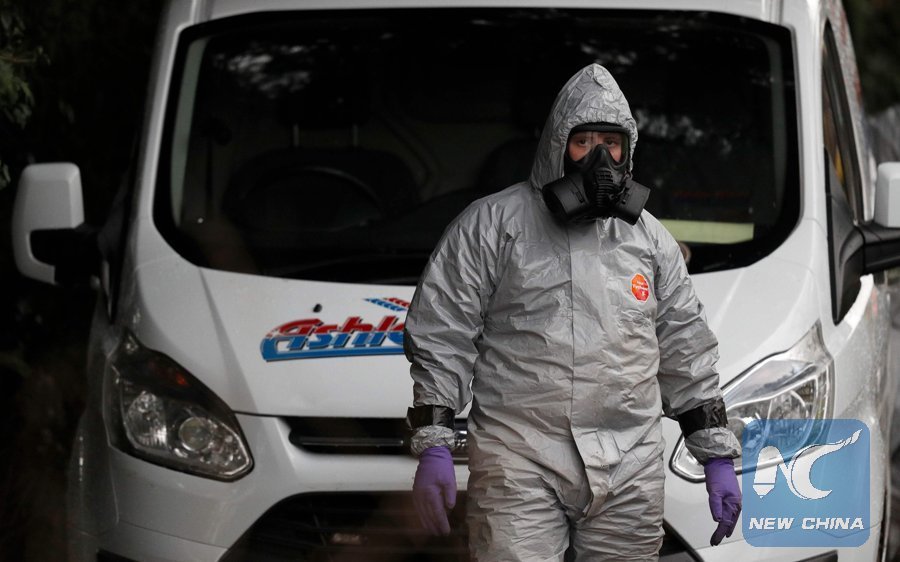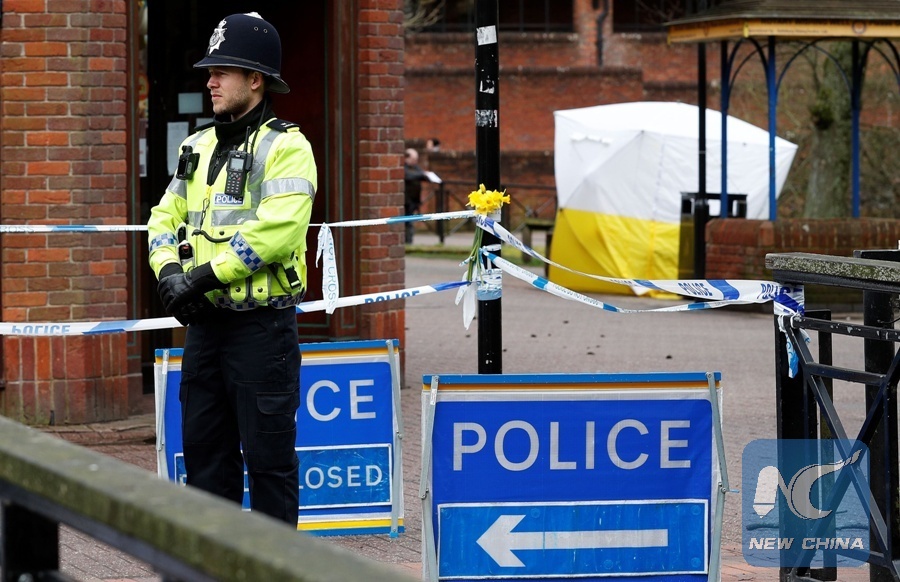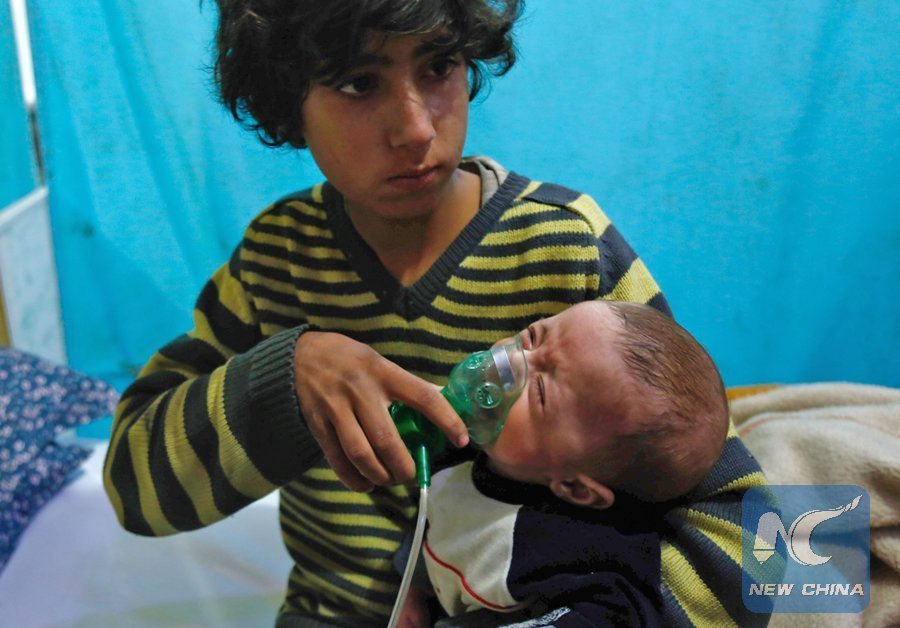
Military personnel wearing protective coveralls work to remove a vehicle as part of the ongoing investigation in connection with the major incident sparked after a man and a woman were apparently poisoned in a nerve agent attack on March 12, 2018, near Middle Winterslow. (Xinhua/AFP)
UNITED NATIONS, March 20 (Xinhua) -- A team of experts from the Hague-based Organization for the Prohibition of Chemical Weapons (OPCW) are collecting samples of the poisoning of a former Russian spy in southern England and the chemical used could be determined in three weeks, said Ahmet Uzumcu, the head of the OPCW, on Tuesday.
The samples will be sent to designated labs for analysis, which may take two to three weeks. Once the results were determined, they will be shared with the British government, the director-general told reporters at UN Headquarters in New York.
British authorities have claimed that the nerve agent Novichok was used in the poisoning of Sergei Skripal and his daughter Julia on March 4 in the southern English city of Salisbury. London has demanded Moscow explain why the nerve agent that traces back to Russia should end up in Britain. Moscow has denied any involvement.

A police officer stands on duty at a cordon near a bench covered in a protective tent at The Maltings shopping centre in Salisbury, southern England, on March 12, 2018, where a man and woman were found critically ill on March 4, after being apparently poisoned with what was later identified as a nerve agent sparking a major incident. (Xinhua/AFP)
Sergei Skripal, 66, is a former Russian spy before he became a double agent for Britain.
Asked about the possible link between Russia and the poisoning, Uzumcu said: "I cannot really prejudge the outcome of such a technical work at the moment."
Uzumcu, who has just briefed the Security Council on chemical weapons use in Syria, said there are several new allegations of chlorine attacks in the country. The OPCW Fact-Finding Mission in Syria are looking into the alleged incidents, he said.

A Syrian boy holds an oxygen mask over the face of an infant at a make-shift hospital following a reported gas attack on the rebel-held besieged town of Douma in the eastern Ghouta region on the outskirts of the capital Damascus on Jan. 22, 2018. (Xinhua/AFP)
There are also allegations of chemical weapons use in the district of Afrin, where Turkish forces are launching attacks on Kurds. But the OPCW mission could not find credible information to pursue investigations, said Uzumcu.

